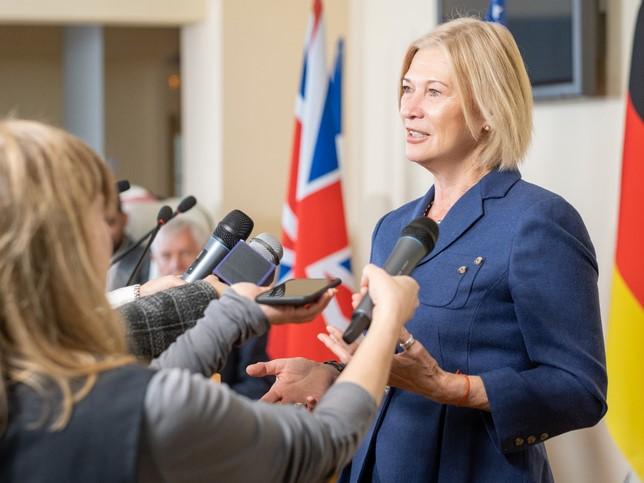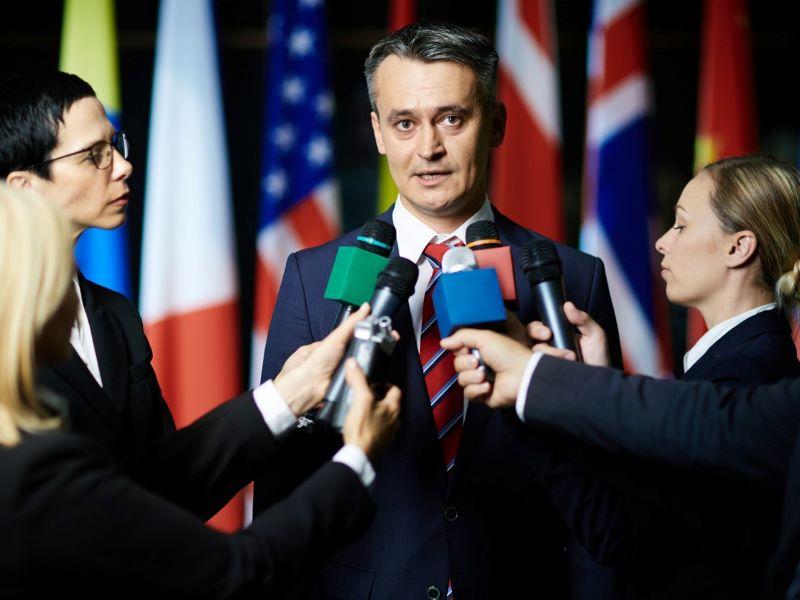
Want your research to have an impact on policy? Know your audience
Academics tuck away policy recommendations at the end of nearly every journal article as a matter of course, but who exactly are these “policymakers” that the recommendations are intended to reach? Unfortunately, in academic contexts, “policymaker” is an ill-defined term that is often applied to all policy actors – meaning that it is effectively misapplied because it does not account for relevant distinctions between different policy actors.
In a policy environment, there are two clearly defined positions – politicians and professional staff – and each serves distinct roles in policymaking. Ultimately, influencing policy requires interactions with politicians, defined as elected officials and their appointees, because politicians set policy. Professional staff carry out policy. Although professional staff are certainly important to the policymaking process and policy implementation, they cannot get ahead of the public positions held by their political bosses. If politicians are the ultimate audience to change policy, then what should academics know when interacting with politicians? That politicians are novices – by design – who function with half-knowledge.
More than likely, politicians’ formal academic training and professional experiences are not in education research or policy. Most politicians come from the private sector. Thus, education committees in policy settings across the country are filled with laypersons who are novices in education research and policy. Yet, they are charged with making important decisions about education.
- Learning the craft of using your research to engage in policy
- Get your research out there: 7 strategies for high-impact science communication
- Professors who ‘practise what they preach’ help humanise research management
Why are politicians novices by design? Politicians serve on many different committees and routinely make decisions outside their academic and professional expertise. In these instances, politicians are novices. For example, if you ran for office and won, it’s likely that you would be an expert on the education committee but would also serve on other committees – say, transportation. As a member of the transportation committee, you would be a novice, thrust into the challenging position of learning about transportation policy while you were setting transportation policy – a major reason that politicians describe legislative sessions as like “drinking water from a firehose”. Similar to the education layperson-turned-politician making decisions on education policy, you would likely engage in novice behaviours to learn about transportation policy at the same time as you were making decisions about transportation policy.
Novices understand issues in isolation. They are unable to connect specific instances to a broader context or anticipate next steps with accuracy. When presenting complex and nuanced academic research, I recommend that academics follow a sequenced four-step scaffolding strategy to take the novice politician from straightforward questions to more complex concepts:
1. Answer the questions as posed by politicians. Academics should not discount straightforward questions from novice politicians. Rather, academics should answer the questions as posed by politicians, in concrete terms, even though the content of the questions may be limited in scope compared with how academics study and understand issues.
2. Anticipate the next question that politicians are likely to pose and then answer the subsequent question. Remember that novices are unable to relate issues to a broader context, so academics should leverage their expertise to connect the content of the politicians’ straightforward questions to other issues by anticipating and answering the next question that politicians are likely to ask.
3. Identify consequences that are likely to thwart policy implementation or adversely impact outcomes. As experts, academics should be able to anticipate potential consequences associated with politicians’ policy ideas. Demonstrate your expertise by identifying likely consequences for politicians. Focus on those consequences that politicians are likely to experience themselves to reinforce the connection between research evidence and real-world outcomes.
4. Provide a framework to help novice politicians recognise meaningful patterns and to guide future actions based on research. Novice politicians are now in a better position to understand more complex concepts and make connections to broader contexts. Academics can then provide politicians with more complex answers, in line with the academics’ research.
Faced with countless issues and many people vying for their attention, politicians develop a strategy to manage their time and allocate resources by determining which problems receive attention (or not) at any given time, and by extension, how they seek and use information, including research evidence.
In this demanding environment, they often appeal to trusted individuals and say: “Tell me what I need to know” to manage the deluge of information before them and take action. For politicians, the balancing act involves understanding which problems and related information to recognise and which to ignore at any given time. This concept, known as “half-knowledge”, holds that politicians take a confined view of problems and restrict knowledge acquisition to facilitate their ability to take action. Too much information, particularly abstract or esoteric information, can be distracting and paralysing.
Half-knowledge sheds light on a course of action for academics by helping them determine which information they should communicate to politicians. Academics should understand that politicians are not inclined to engage with research for understanding. Rather, politicians learn for the purpose of taking action on specific issues. Thus, academics should always connect their research to a real-world, practical problem facing politicians or run the risk of being filtered out as surplus knowledge.
Other times, academics are inclined to provide politicians with summaries of the “facts” on both sides of issues in an effort to avoid being seen as “too political”. But “neutral” information is not what politicians “need to know” to take action. Instead, use your expertise to predict future policy outcomes. When you can help politicians predict what is likely to happen next, they are in the desirable position to potentially control events, and you become an invaluable voice in policymaking.
David R. Garcia is an associate professor at the Mary Lou Fulton Teachers College at Arizona State University. He is a former legislative staffer with the Arizona state senate and was the 2018 Democratic candidate for governor of Arizona. His latest book is Teach Truth to Power: How to Engage in Education Policy (MIT Press, 2022).
If you would like advice and insight from academics and university staff delivered direct to your inbox each week, sign up for the Campus newsletter.




